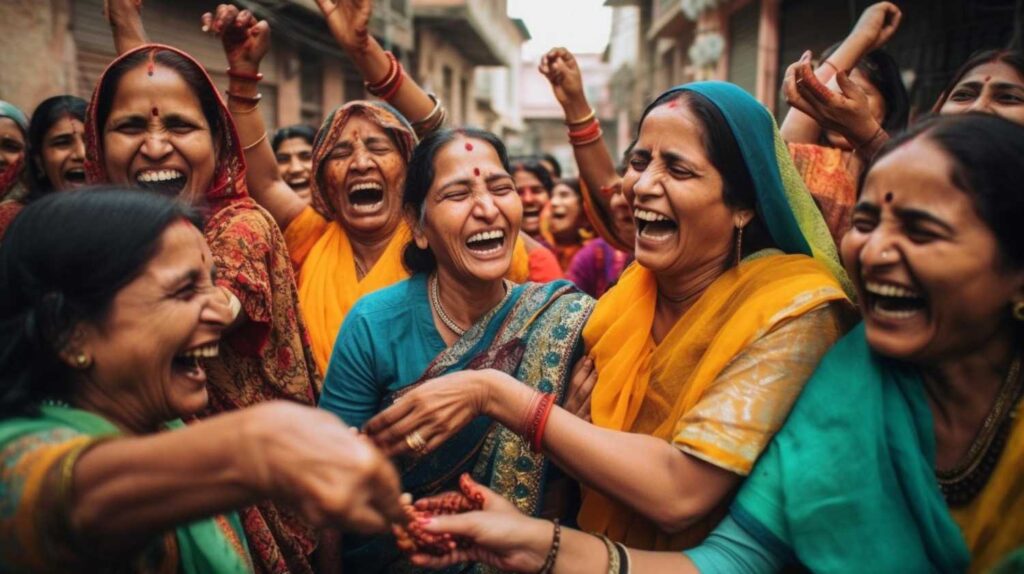Several states in India are making significant strides in the realm of biometric authentication for food benefit programs. With the aim of efficiently distributing essential food supplies to its vast population, India has harnessed the power of biometrics to ensure that food benefits reach the rightful recipients while minimizing fraud and leakage in its public distribution system.
Exploring Uttar Pradesh’s Biometric Solution Selection for ‘Poshahar’
In the vast and diverse landscape of Uttar Pradesh, a comprehensive tender process is currently underway, seeking the expertise of a biometric solution providers for the esteemed ‘Poshahar’ program. This initiative aims to elevate the management of food supplies at designated distribution centers, thus ensuring that food rations intended for beneficiaries reach their rightful recipients. To achieve this objective, the state is embarking on a system integration endeavour, executed under the banner of a Build-Operate-Transfer (BOT) agreement.

The Noble Purpose of ‘Poshahar’
‘Poshahar,’ a beacon of hope and welfare in the state, stands as a symbol of commitment to the welfare of their most vulnerable. Its noble mission is to extend supplementary food services to specific demographic groups, including children aged six and below, pregnant, and lactating women, severely malnourished children, and adolescent girls aged 14 to 18.
Guidance from UPDESCO
The Uttar Pradesh Development System Corporation Limited (UPDESCO) is entrusted with the crucial responsibility of orchestrating the tender process. This process encompasses the installation of state-of-the-art iris biometrics-based Point-of-Service machines at distribution centers. Additionally, the selected contractor is expected to provide not just hardware but also the essential software applications, a dedicated team of field and technical experts, SIM cards for connectivity, and ongoing maintenance services.
A Glimpse of Karnataka’s Transition to Direct Benefit Transfers (DBTs)
Turning our gaze to the southern state of Karnataka, we witness an innovative shift from traditional food ration distribution to the modern approach of cash distribution through the Direct Benefit Transfers (DBTs) scheme. This transformation leverages the Aadhaar biometric digital ID for authentication, marking a significant leap forward in the digitization of welfare services.
The Promise of DBTs in Karnataka
Experts’ analysis sheds light on the potential of DBTs, particularly in states like Karnataka. While challenges may arise during the initial stages of implementation, there is optimism about DBT’s ability to revolutionize how citizens access public distribution services. Crucially, ensuring the seamless linkage of ration cards with Aadhaar-enabled bank accounts is deemed essential for precise beneficiary identification.
India’s Pursuit of Family IDs for Enhanced Efficiency
Nationwide, India is diligently working on the concept of Family IDs to bolster the efficiency of its DBT systems, representing a forward-looking approach to welfare distribution.
Kolkata’s Initiative: Linking Ration Cards and Aadhaar IDs
Meanwhile, in the bustling city of Kolkata, state authorities have issued a compelling call to action. They urge all ration cardholders to link their credentials with their Aadhaar digital IDs. This initiative commences this month, with district magistrates taking charge of the process, employing a door-to-door outreach strategy. This decision arises from the observation that a significant portion of ration beneficiaries has yet to link their ration cards with Aadhaar IDs, creating difficulties in verifying their personal details.
These initiatives across India, while diverse in nature, all share the common goal of enhancing the efficiency and transparency of welfare distribution systems, ensuring that those in need receive the support and sustenance they deserve.
India’s proactive approach to biometric authentication in its food benefit programs is a testament to the country’s commitment to addressing the challenges of food distribution to its massive population. As technology continues to advance, India’s efforts in this domain serve as a shining example for other countries seeking to improve the efficiency and effectiveness of their social welfare programs through biometric technology.